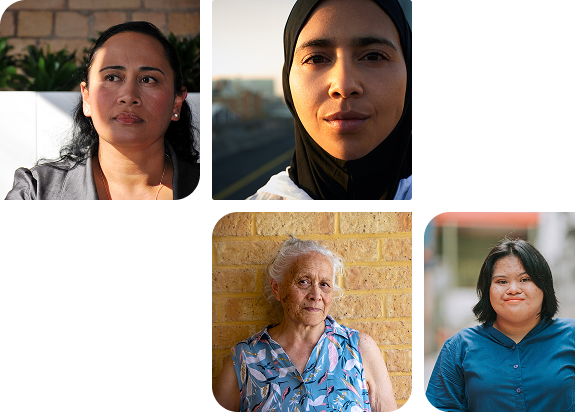Tell someone you trust if you can
If there’s someone you can trust, you might want to tell them about what you’re experiencing and let them know how they might be able to help. People often want to help but don’t know how. You might just want someone to talk to and provide emotional support. It might be a good idea to tell them not to do anything for you, or share anything you’ve told them, without asking you first, because that could make your situation worse.
If you don’t have anyone you can trust to support, that’s ok, there are services like Women’s Refuge who can support you through this.
Safety planning ideas
These ideas may be helpful if you are planning to leave, or if you are staying but might need to leave suddenly.
Arrange a safe word and sign
Choose a safe word with your supporters that means ‘Call the police’. It is also a good idea to teach children to call 111 in an emergency (any emergency) and memorise your address to tell 111 operators.
Let your trusted support people know about your plans
Talk to your support people about how they might be able to help you when you leave, or if you need to leave suddenly. Maybe you can store a ‘go-bag’ with them for emergencies, or have a plan to stay with them if you leave, or just long enough to ring police or a family violence helpline who can help get you into safe emergency accommodation.
Phone, keys, charger
Have your phone charged and keep it within reach as much as possible. Also keep your keys on you as much as possible and keep your phone charger handy. If you leave, take all three, or have spares/backups with your trusted support people.
Transport
Have a plan for getting somewhere safe. For example, if you have a car, try to keep enough petrol in the tank for this trip.
Copies of documents for you and your kids
If possible, make copies of all your most important documents. Copy your ID and/or passport, your children’s birth certificates, and property documents (like your tenancy contract or house title). Ensure you have copies of, or access to, information about bank accounts, loans, assets and debt - all the financial information you might need to re-establish yourself. Good Shepherd can support you with the financial aspects (whether you are in the relationship or not). More information is available on the Good Shepherd website.
Keep any copies of documents at a safe location such as a supporter’s home, your work or in your car.
Considering your pets
Pet Refuge is a national charity that provides temporary accommodation for pets affected by domestic violence, while their owners secure their own safety.
More information is available on the Pet Refuge website.
Workplace help
If you work full time, you are entitled to up to 10 days of paid family violence leave per year to manage the effects of family violence. You can also ask for short-term flexible work arrangements for up to two months for this purpose, for example, if you need different hours, a different work location, or changes to your work duties.
Some workplaces offer even more support for employees affected by family violence. If your employer asks for proof of family violence, ring the 24/7 Are You OK helpline or Women’s Refuge to talk about what you can do.
If you decide to leave
It can be hard to think through all the things involved in separating from a partner using abuse, and the best order to do things in, much less having the time and energy to do these things safely, especially if you have young children in your care.
It may really help to talk through your plan for separating with Women’s Refuge or another family violence service. They may be able to suggest options you don’t know about, and they can help you think through what you need to do, the best way to go about it, and whether you might need more support from a family violence advocate or to stay at a safe house.
If you leave suddenly
If you leave suddenly and haven’t been able to plan where you’ll go, go somewhere you feel safe to call the police on 111 or a family violence helpline, and ask for help to access safe housing or emergency accommodation. If you don’t have a friend, neighbour or family member you can visit where you would be safe to make this call, think about going to busy shop or public place where there will be other people around.

